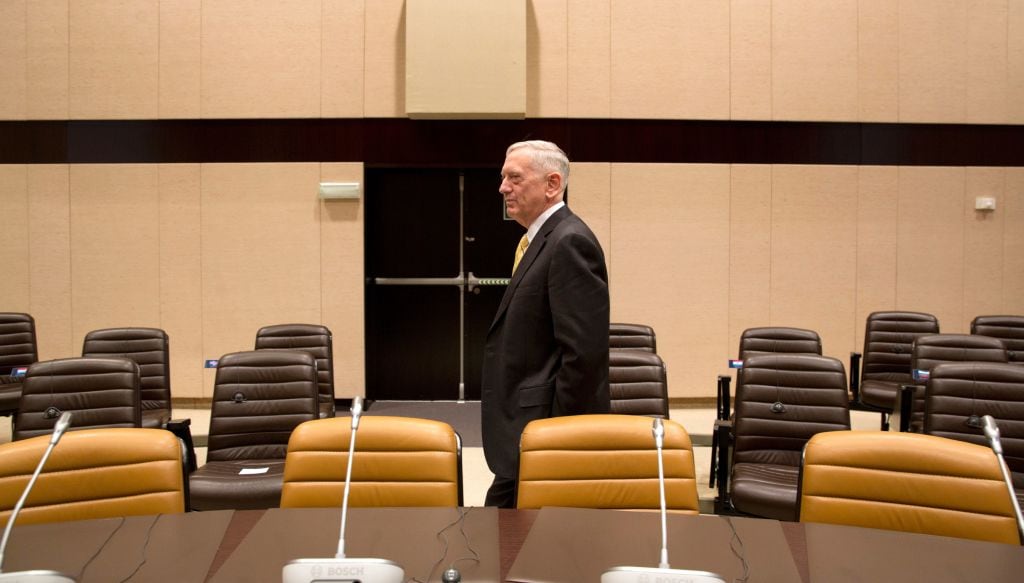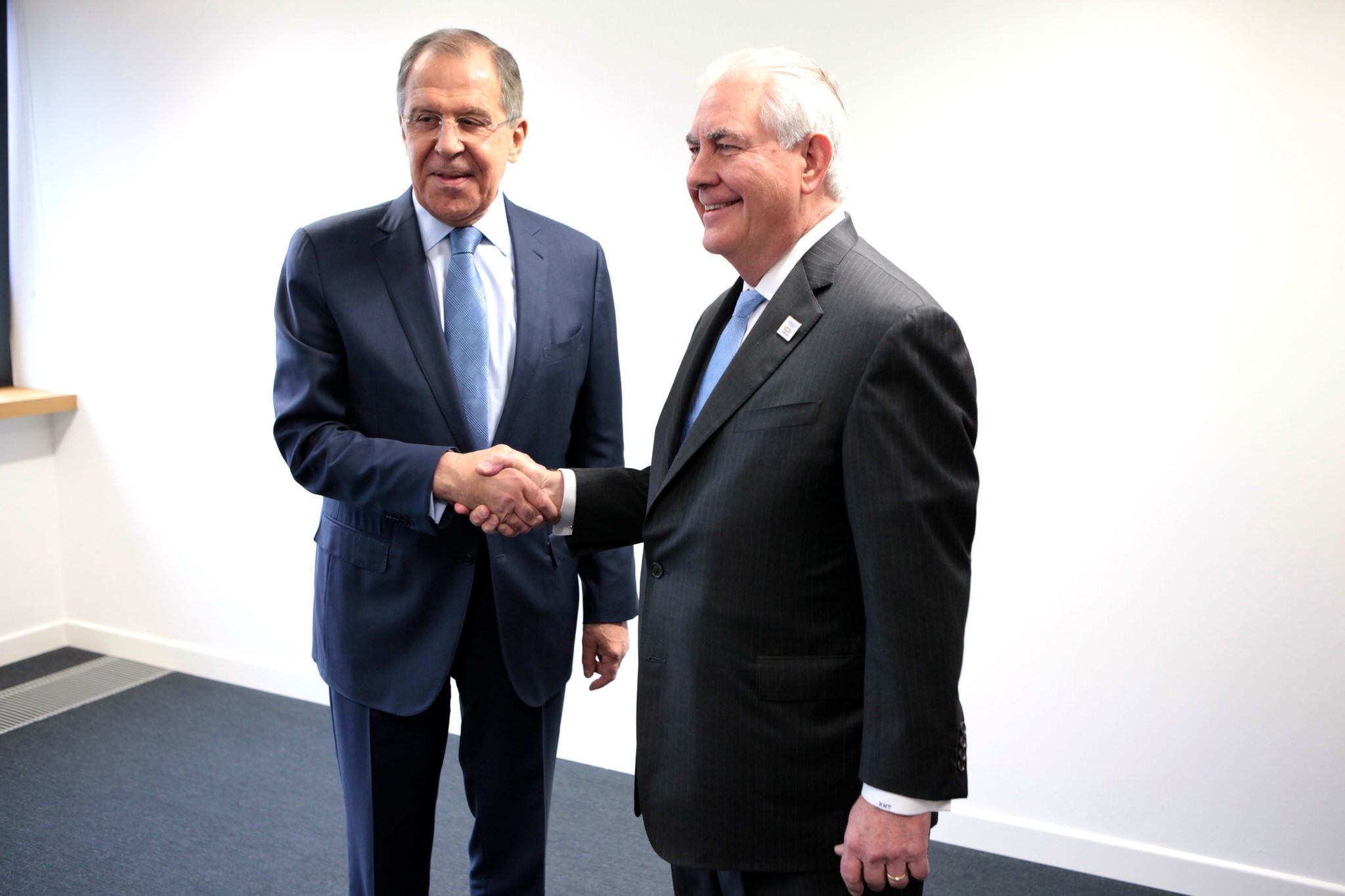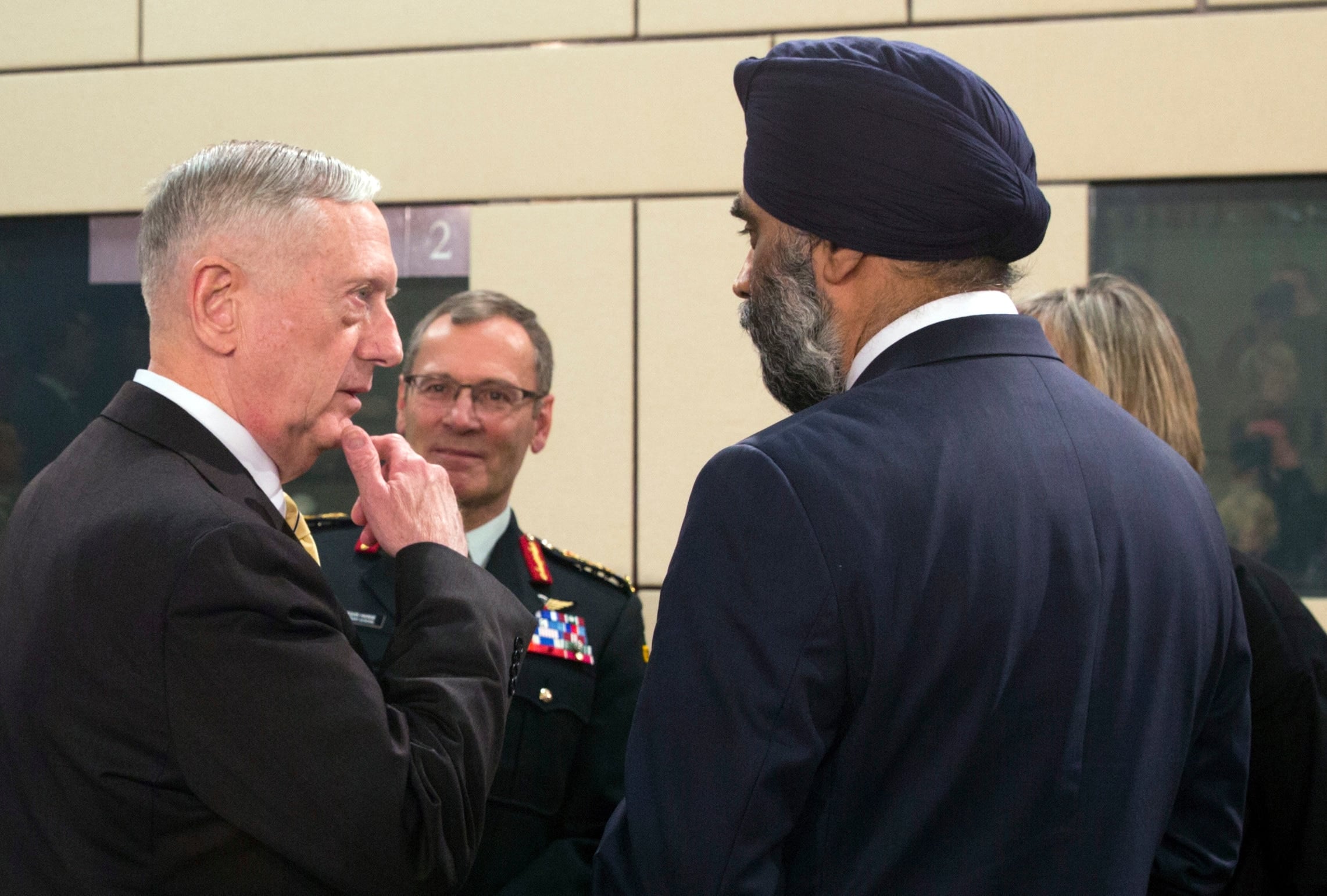BRUSSELS — The Trump administration signaled Thursday there will be no change soon in U.S.-Russian relations, putting the onus on Moscow to prove itself if it wants closer cooperation with Washington. Russia's support for Ukrainian separatists was underscored as a test case of its willingness to change behavior.
At a NATO meeting in Brussels, U.S. Defense Secretary Jim Mattis made clear the United States isn't ready to collaborate militarily with its former Cold War foe against the Islamic State or other threats, a long-standing goal of the Kremlin's which new U.S. President Donald Trump says he wants, too. After meeting with Russia's top diplomat in Germany, U.S. Secretary of State Rex Tillerson said Moscow first must help stop violence in Ukraine.
The comments appeared to put the brakes on a rapid transformation in U.S.-Russian ties, which have been badly strained by fighting in Ukraine and Syria as well as by American accusations of Russian interference in last year's U.S. presidential election. European countries close to Russia's border have been especially alarmed by the prospects of U.S.-Russian rapprochement, given Trump's references to NATO as "obsolete" and his repeated praise for Russian President Vladimir Putin.
"Russia is going to have to prove itself first," Mattis said. Nations will seek "a way forward where Russia, living up to its commitments, will return to a partnership of sorts here with NATO," he explained.

Defense Secretary James Mattis arrives for a NATO Defence Ministers' meeting held at the NATO headquarters in Brussels on February 16, 2017.
Photo Credit: Virginia May/Pool via AFP/Getty Images
But he made clear that a significant attitude change is required by leaders in Moscow, declaring that there is "very little doubt that they have either interfered or they have attempted to interfere in a number of elections in the democracies."
While Mattis addressed reporters, Tillerson met with Russian Foreign Minister Sergey Lavrov in the former West Germany capital of Bonn and U.S. Gen. Joseph Dunford, the Joint Chiefs of Staff chairman, sat down with his Russian counterpart, Gen. Valery Gerasimov, in the former Soviet republic of Azerbaijan. They represented the first meetings between the two countries' top diplomats and military men since Trump was sworn in.
Tillerson, a former Exxon Mobil CEO with long experience in Russia, having even been awarded a friendship medal by Putin, emphasized that Russia must abide by a 2015 deal aimed at ending fighting between Ukrainian forces and Russia-backed separatists. "As we search for new common ground, we expect Russia to honor its commitments," he said.
Lavrov said in remarks broadcast live by Russian television that during the meeting the parties confirmed a shared interest in pooling efforts to fight terrorism. He credited Tillerson for having "voiced readiness to support" a Russian-led process to end Syria's civil war.
"Naturally we couldn't solve all the problems," Lavrov said. "But we have a shared understanding that on issues where our interests coincide, and there quite a few of them, we should move forward."

U.S. Secretary of State Rex Tillerson shakes hands with Russian Foreign Minister Sergey Lavrov before their bilateral meeting on the sidelines of the G-20 Foreign Ministers' Meeting in Bonn, Germany, on Feb. 16, 2017.
Photo Credit: State Department
He said U.S. sanctions on Russia weren't addressed. The matter is extremely sensitive, given Trump's firing early this week of his national security adviser, Michael Flynn, over his discussions about sanctions with a Russian ambassador before Trump took office. The U.S. imposed penalties on Moscow after its 2014 annexation of Ukraine's Crimea region.
Separately, Russia's Defense Ministry said Dunford and Gerasimov "exchanged opinions about the current state of the Russian-U.S. relations" and assessments about other parts of the world. "They have determined the areas of joint work to improve security of military activities, reduce tensions and risk of incidents." The United States later issued an almost identical statement.
But tensions clearly remained. A remark by Mattis at the NATO meeting about negotiating with Russia "from a position of strength" prompted a sharp response from Russian Defense Minister Sergei Shoigu, who said such a strategy was "futile." Asked about Shoigu's reaction, Mattis said: "I have no need to respond to the Russian statement at all."

Defense Secretary Jim Mattis, left, speaks with Canadian Defense Minister Harjit Singh Sajjan, second right, during a meeting of the NATO-Georgia Council at NATO headquarters in Brussels on Thursday, Feb. 16, 2017.
Photo Credit: Virginia Mayo/AP
Trump has tempered his rhetoric about Russia since becoming president, after shocking Democrats and Republicans at home, and allies abroad, with his warm words for the Russians and their leader as a candidate. Various investigations are going on related to the accusations of Russian election meddling. Earlier this week, U.S. officials said Moscow deployed a cruise missile in violations of a Cold War-era nuclear arms agreement.
The U.S. ceased military-to-military relations with Russia after the Crimea takeover. But last year, the Obama administration considered plans to cooperate militarily with Russia as part of a cease-fire deal to end the war in Syria that has killed as many as a half-million people.
Senior Defense Department leaders opposed the plan, and it quickly fell apart as the truce collapsed. But Putin on Thursday voiced support for "a dialogue" with U.S. special services and those of other member countries of NATO.
Lee reported from Bonn, Germany. Associated Press writer Vladimir Isachenkov in Moscow contributed.




